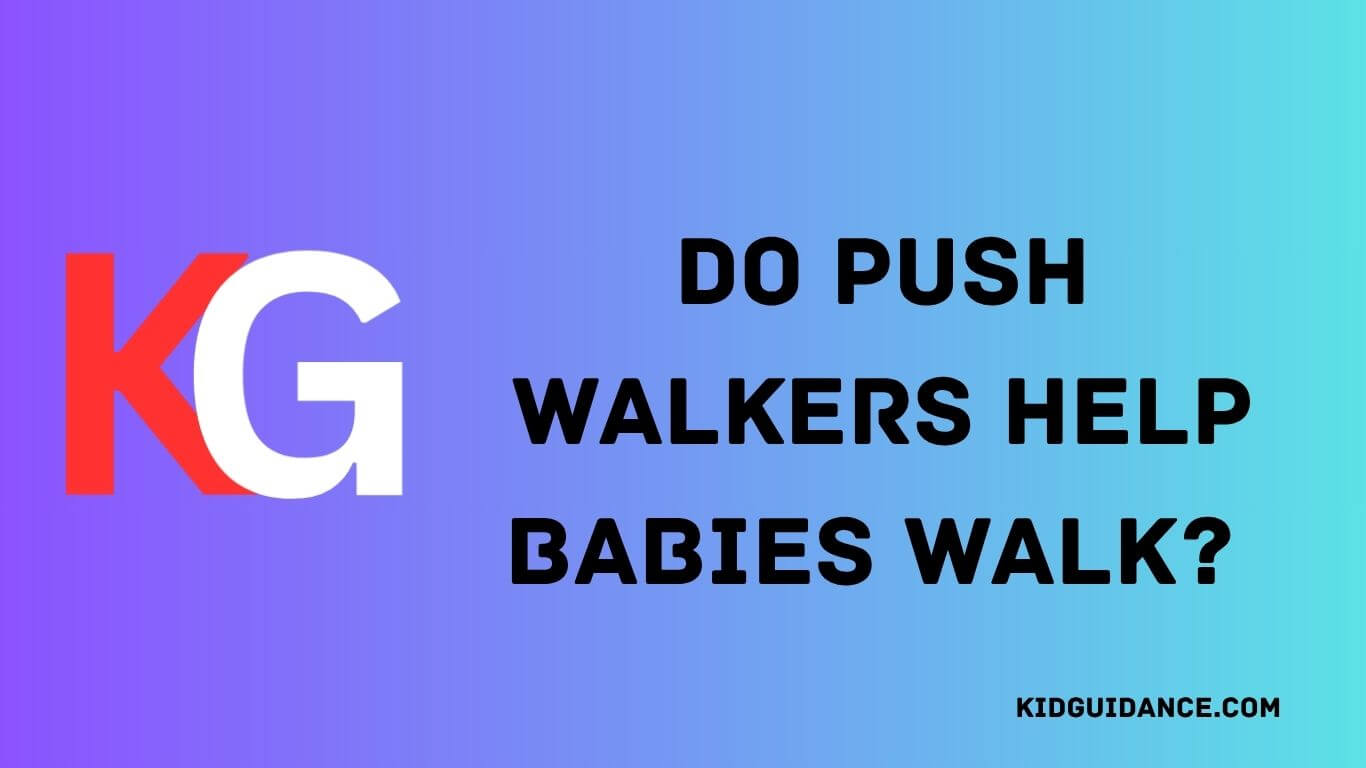Do push walkers help babies walk? It’s a question many parents ask when their little one starts showing interest in standing and moving. While push walkers can offer support and build confidence, they aren’t the magic solution for walking. From my experience as a parent, I’ve found that while push walkers are helpful in some cases, they’re best used as a supplement to natural exploration and movement. In this article, I’ll share insights on how push walkers work, their pros and cons, and what experts recommend when it comes to helping your baby take those first steps.
Let’s dive into what really helps those tiny feet take their first big steps.
Understanding Baby Walking Milestones
Most babies start walking between 9 and 18 months. The typical path looks something like this: tummy time → crawling → pulling up → cruising (walking while holding onto furniture) → first steps.
When my daughter began cruising at 10 months, I kept asking myself, “Would a push walker help or delay her walking?” Turns out, the answer isn’t so black and white. It depends on how and when you use it.
What Are Push Walkers?
Push walkers, also known as baby activity walkers or stand walkers, are toys that babies push in front of them as they walk. These are different from traditional baby walkers that babies sit in (which are banned in Canada due to safety risks).
So, are baby push walkers any good? The short answer is yes—if used correctly and at the right stage.
The Benefits of Push Walkers (When Used Correctly)
Support and Confidence
Push walkers give babies a sturdy object to hold onto, helping them balance as they try to walk. For my son, it was a confidence booster. He went from cruising to walking across the room within weeks.
Muscle Strengthening
The act of pushing helps build strength in the legs, hips, and core.
Fine Motor Skills (if activity panels are included)
Some push walkers come with interactive toys that help build hand-eye coordination and fine motor skills.
Motivation and Fun
Many babies are motivated to move when their toy plays music or lights up. It’s a playful way to encourage movement.
What are the benefits of push walkers? Simply put: confidence, strength, coordination, and a dose of fun.
Potential Risks and Drawbacks
Used too early or too often, push walkers can lead to:
- Poor posture or gait habits (like tiptoeing)
- Delayed balance skills if the walker replaces floor play
- Falls if used unsupervised on hard floors
Do baby push walkers help babies learn to walk? Not directly. They don’t teach walking, but they can support it when your child is developmentally ready.
Expert opinion? Pediatric therapists warn against overuse. Canada banned seated walkers, and many professionals express similar caution about push walkers, especially when introduced before babies can cruise confidently.
Plastic vs Wooden Push Walkers: What Parents Should Know
| Feature | Plastic Push Walker | Wooden Push Walker |
| Weight | Lightweight (can tip easily) | Heavier (more stable) |
| Adjustability | Often has speed control | Rarely adjustable |
| Storage | Foldable | Not collapsible |
| Price | $40–$65 USD | $45–$100 USD |
| Features | Music, lights, activity toys | Basic, some with simple toys |
Which is better, push walker or walker? Push walkers are safer and more natural for motor development than traditional seated walkers.
Best Practices for Safe Push Walker Use
- Wait until your baby can pull up and cruise (around 9–12 months)
- Use it only under supervision
- Avoid using on hardwood or tile floors unless the walker has speed control
- Choose models with non-slip wheels and a wide, stable base
Alternatives to Push Walkers
Push walkers are optional. Some parents prefer:
- Tummy time to build strength
- Cruising along furniture
- Parent-assisted walking (holding their hands)
- Floor play with soft toys or balls
What helped us more than any gadget was letting our kids explore freely. A soft rug, a safe space, and lots of praise worked wonders.
Expert Opinion: What Pediatricians and Therapists Say
Therapists agree: walking is a complex motor skill that develops best through natural exploration. Devices like walkers can interfere if overused.
One study found that walker users had slower walking speeds, reduced knee movement, and altered hip patterns. Most doctors don’t recommend push walkers, but they don’t condemn them either—they just urge caution.
Our Verdict: Do Push Walkers Help Babies Walk?
Yes—but with big asterisks.
Push walkers can support a confident, curious baby who is already standing and cruising. But they won’t magically teach walking, and they’re not needed for every child.
In our experience, it gave our baby confidence but never replaced the importance of tummy time, crawling, and hands-on play.
FAQs
Do push walkers help babies walk?
Yes, push walkers can provide support and build confidence in babies learning to walk. However, they should be used as a supplement, not a replacement for natural movement.
What age is best to use a push walker?
Push walkers are typically safe to use when babies can pull themselves up to stand and cruise around furniture, usually around 9–12 months of age.
Are baby push walkers any good?
When used correctly, baby push walkers can be beneficial for building strength and balance. However, they should be used alongside natural exploration to ensure healthy motor development.
Which is better: push walker or baby walker?
Push walkers are a better choice than traditional baby walkers. Unlike baby walkers, push walkers encourage independent movement and help develop walking skills naturally.
Can push walkers delay walking?
If used improperly or too early, push walkers can affect a baby’s posture and gait, potentially delaying walking. Always wait until your baby is ready for independent movement.
What are the benefits of push walkers?
Push walkers can help babies develop muscle strength, coordination, and balance. They also boost confidence by encouraging babies to take steps independently.
Do baby push walkers help babies learn to walk faster?
Push walkers may help babies practice walking but do not speed up the process. Babies naturally develop walking skills through cruising, crawling, and standing.
Are push walkers recommended by doctors?
While doctors may approve the use of push walkers in certain cases, they are not essential. They can be helpful for some babies, but natural movement is key for healthy development.
What are the risks of using push walkers?
Overuse of push walkers can lead to poor posture, abnormal gait patterns, and reliance on the walker for balance. Use them sparingly, under supervision.
Can push walkers cause injuries?
If used incorrectly, push walkers can cause falls or injuries, especially on slippery floors. Always supervise your baby and ensure the walker is used on safe, non-slippery surfaces.
Conclusion
So, do push walkers help babies walk? Yes—if your baby is ready, and you use it wisely. They’re fun, supportive, and sometimes helpful. But they’re not a must-have.Every child learns to walk at their own pace. Focus on engagement, freedom, and natural movement. Still unsure? Talk to your pediatrician or a pediatric therapist. Your baby’s first steps are coming—with or without a walker.




